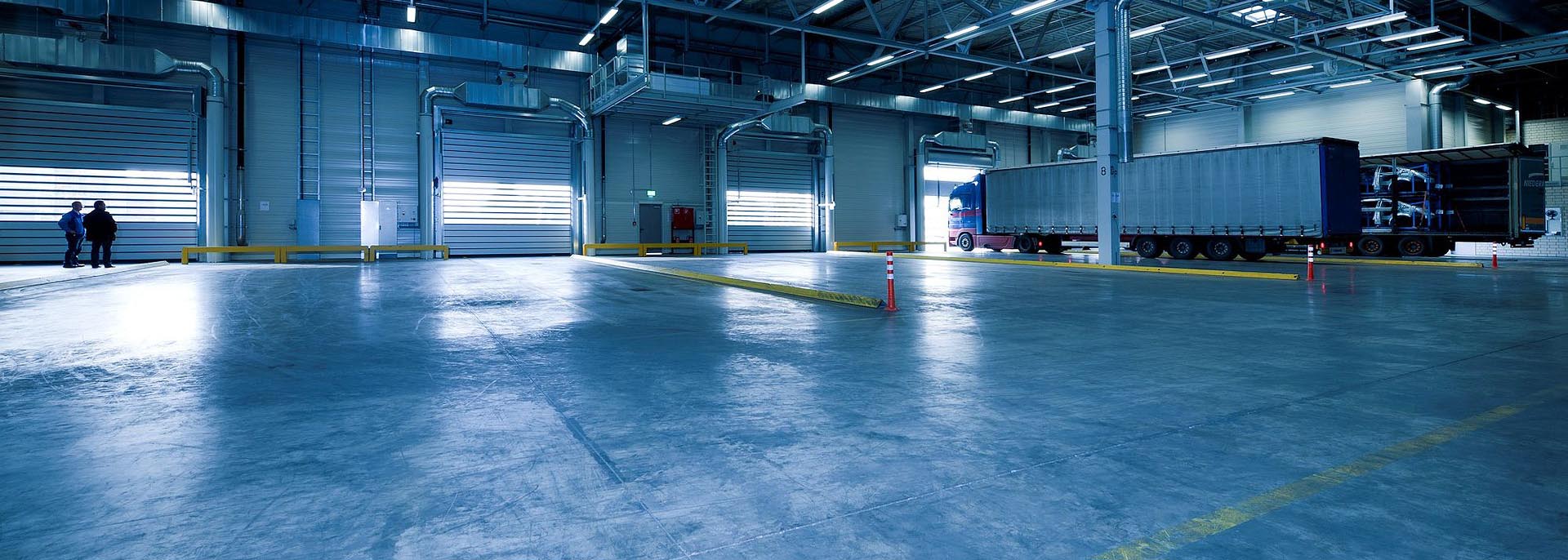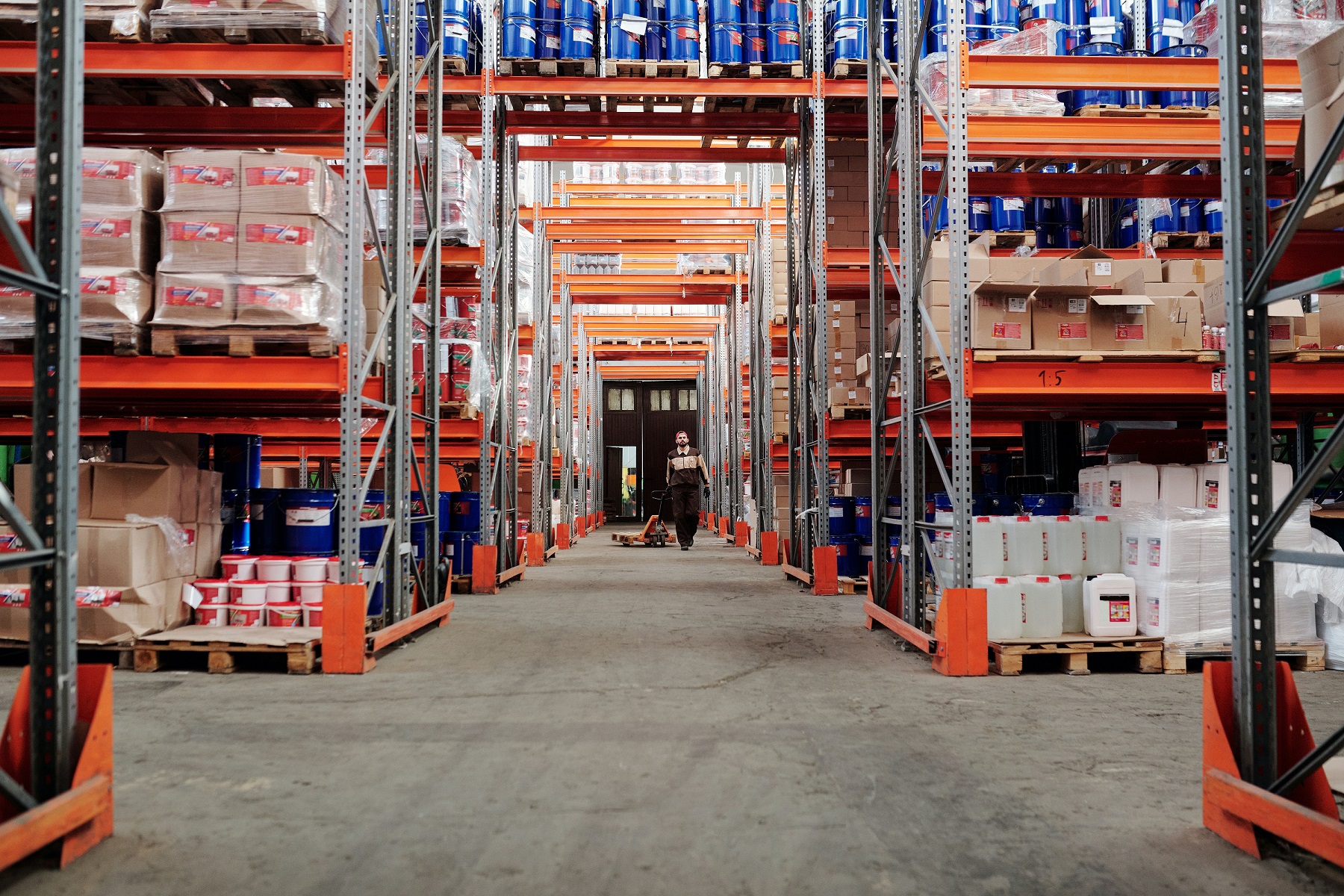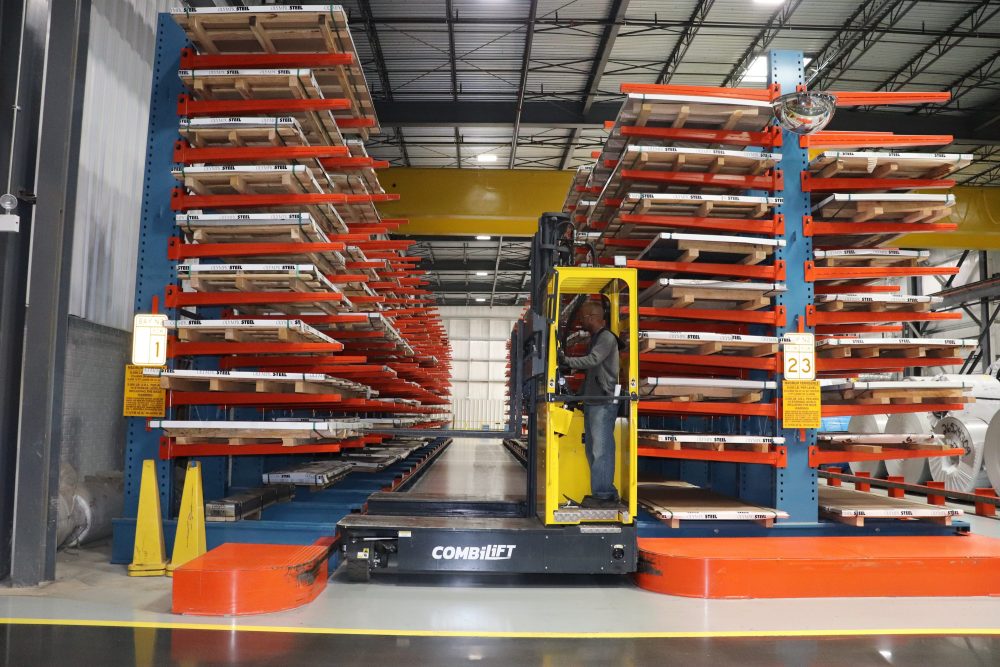What is Material Handling
Material handling is accomplished through a combination of human labor, semi-automated processes, and automated equipment. These combine to support logistics and keep the supply chain operating.

Material handling can help with many different parts of the business cycle:
Forecasting – planning and being prepared for highs and lows in the supply and demand
Resource allocation– ensuring that your materials are in the right places
Production planning – scheduling and implementation of customer orders
Flow and process management – keeping product moving
Inventory management and control – keeping track of product and shipping with just in time delivery
Customer delivery – deliver product from the warehouse to the customer
Support and service – providing customers with help aftermarket
What Industries use Material Handling
When a manufacturer has an excellent material handling system, the customer service is improved, there’s not as much inventory to store, delivery times are quicker, and overall costs for handling and distribution are decreased. Material handling systems are important in nearly every industry:
Aerospace
Automotive
Beverage
Construction
Consumer goods
E-Commerce
Food
Manufacturing
Paper
Pharmaceutical
Retail
Warehousing and distribution
Material handling does have standards that ensure all phases of the process are handled efficiently as a single unit. When managers analyze the goals of material handling and use best practices, they create a well-designed system that will reduce costs, improve efficiency, and keep customers satisfied.
These best practices can best be defined as follows:
Planning: Determine the needs, functional specifications, and performance objectives of the proposed system. Enlist the use of supporting technologies and use a team approach.
Standardization: Ensure that all methods of handling controls, software, and equipment are standardized and flexible enough to perform multiple tasks in any operating condition.
Work: Keep the work simple by merging, reducing, shortening or eradicating any useless movement that might slow productivity.
Ergonomics: It is essential to reduce any repetitive motions or strenuous labor that might cause injuries or long-term damage to any worker. Always stress safety.
Unit load: To ensure the most efficient process possible, groups of pallets, totes, or containers should be moved in single loads.
Space utilization: Work areas need to remain free of clutter, maintain accessibility and flexibility, and keep storage areas to maximum density. Always use overhead space as much as possible.
System: It is essential that managers and warehouse operators move material and coordinate storage during all parts of the material handling process: receiving, storage, packaging, production, inspection, assembly, order selection, shipping, transportation and returns.
Environment: Whenever possible, energy use should be reduced and environmental concerns addressed. It is necessary for the overall health of the system to have as much control over emissions and other environmental issues as possible. This is not only good for the environment, it is also good for maintaining a healthy work environment for employees.
Automation: The technologies for automated material handling can help increase consistency, efficiency, and responsiveness.
Life cycle cost: When combining semi-automated and automated machinery with human labor, all equipment must be maintained on a regular schedule. Each machine should be analyzed for life-span, initial investment, setup, operation, maintenance, repair, programming, reuse value, training, and disposal.
Material handling is executed in a relatively small, geographic area. The manufacturing facility, warehouses, and shipping facilities are the primary areas used in material handling.
Product is made, inspected, and packaged in the manufacturing facility. Product is stored and organized in the warehouse, and the shipping facilities send the products to clients and customers around the globe.
Material Handling Equipment at Easy Street
At Easy Street we understand how important material handling equipment is to the business cycle and getting inventory to the customer. Our forklifts and straddle carriers increase efficiency and storage.
We provide new, used and rental forklifts. Our skilled service team with all the knowledge to keep your equipment running efficiently. If you are interested in any of our equipment, or in need of forklift parts or service fill out our form or call us at 630-682-0021.



